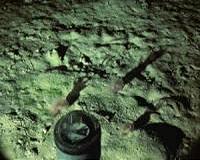 |
Vancouver, British Columbia (UPI) Feb 4, 2011 Canadian researchers say actual fishery catches in the arctic in the last 50 years were almost 75 times the amounts reported to authorities. Scientists at the University of British Columbia estimate 950,000 tons were caught from 1950 to 2006, far above what was reported to the U.N. Food and Agriculture Organization during this period, a university release said. The research team reconstructed fisheries catch data from various sources for the FAO's Fisheries Statistical Area 18, which covers arctic coastal areas in northern Siberia, Alaska and Canada. "Ineffective reporting, due to governance issues and a lack of credible data on small-scale fisheries, has given us a false sense of comfort that the arctic is still a pristine frontier when it comes to fisheries," Dirk Zeller at UBC's Fisheries Center says. "We now offer a more accurate baseline against which we can monitor changes in fish catches and to inform policy and conservation efforts. "Conservation efforts in the arctic have so far focused on the exploitation of marine mammals -- seals and polar bears are frankly easy on the eye and plain to see," Zeller says. "None of them would survive, however, if we allow over-exploitation of fish in this delicate but so-far neglected ecosystem."
Share This Article With Planet Earth
Related Links Water News - Science, Technology and Politics
 Could The Humble Sea Cucumber Save Our Seas
Could The Humble Sea Cucumber Save Our SeasNewcastle, UK (SPX) Feb 03, 2011 It may look like an over-grown slug, but scientists at Newcastle University believe the sea cucumber could play a vital role in the fight to save our seas - and become an unusual addition to British gourmet food. Not only is this salty Asian delicacy a rich source of nutrients, it is also an important part of the marine ecosystem. Much like worms working soil in a garden, sea cucumbers are ... read more |
|
| The content herein, unless otherwise known to be public domain, are Copyright 1995-2010 - SpaceDaily. AFP and UPI Wire Stories are copyright Agence France-Presse and United Press International. ESA Portal Reports are copyright European Space Agency. All NASA sourced material is public domain. Additional copyrights may apply in whole or part to other bona fide parties. Advertising does not imply endorsement,agreement or approval of any opinions, statements or information provided by SpaceDaily on any Web page published or hosted by SpaceDaily. Privacy Statement |